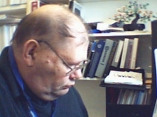
Back in my university days at University of British Columbia and Brigham Young University Hawaii, professors would often hand out lists of books under the title of Suggested Reading. The lists would include chapters in scholarly articles, chapters in books, whole books and theses and dissertations. Most of us recycled the papers by doodling on the back and front during the lecture. But the smart ones actually went to the library to read the books and articles! Sometimes I include a list of suggested readings at the end of a handout under the title of suggested readings. I am sure they are never consulted.
Are genealogists like those university students? Continue reading











